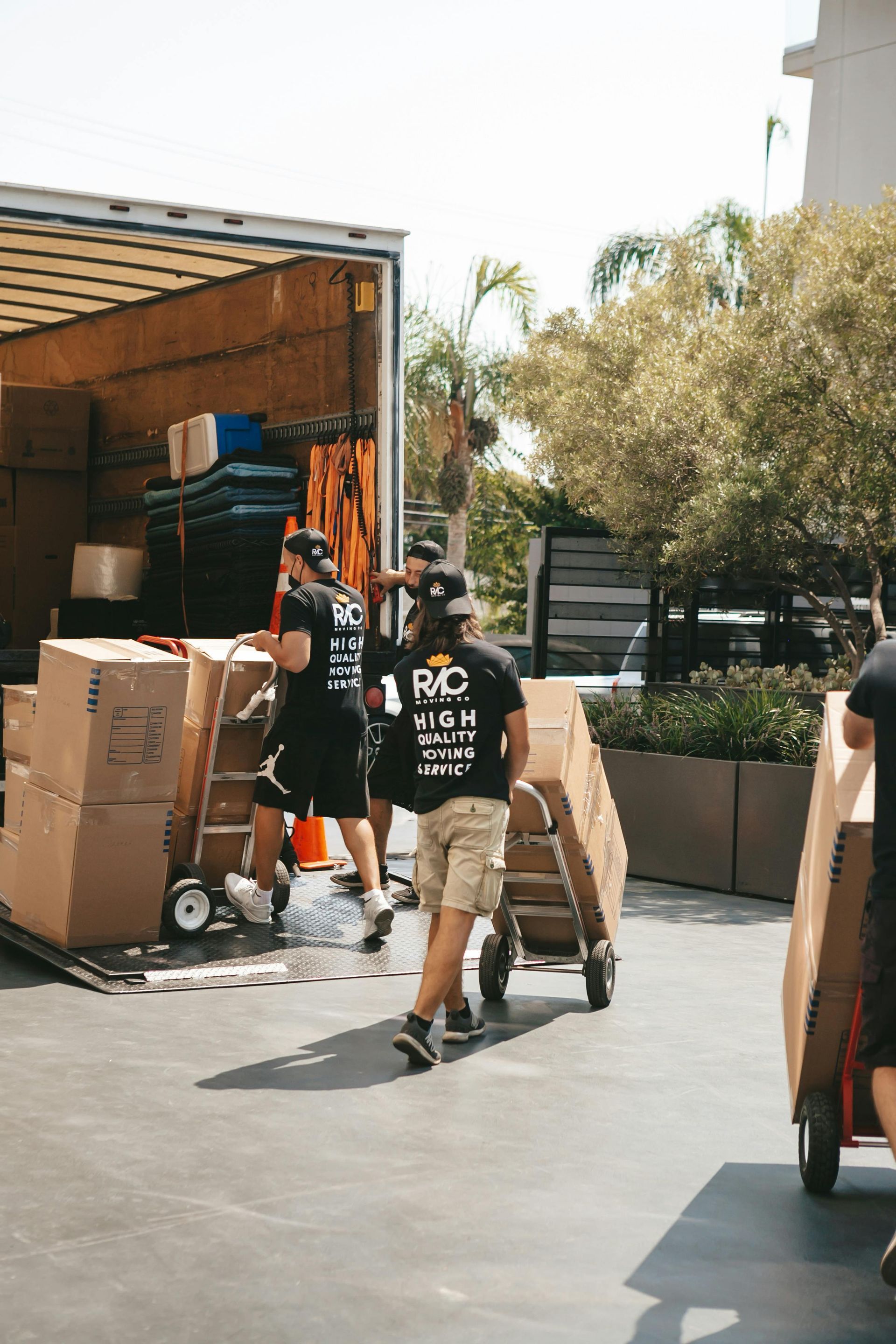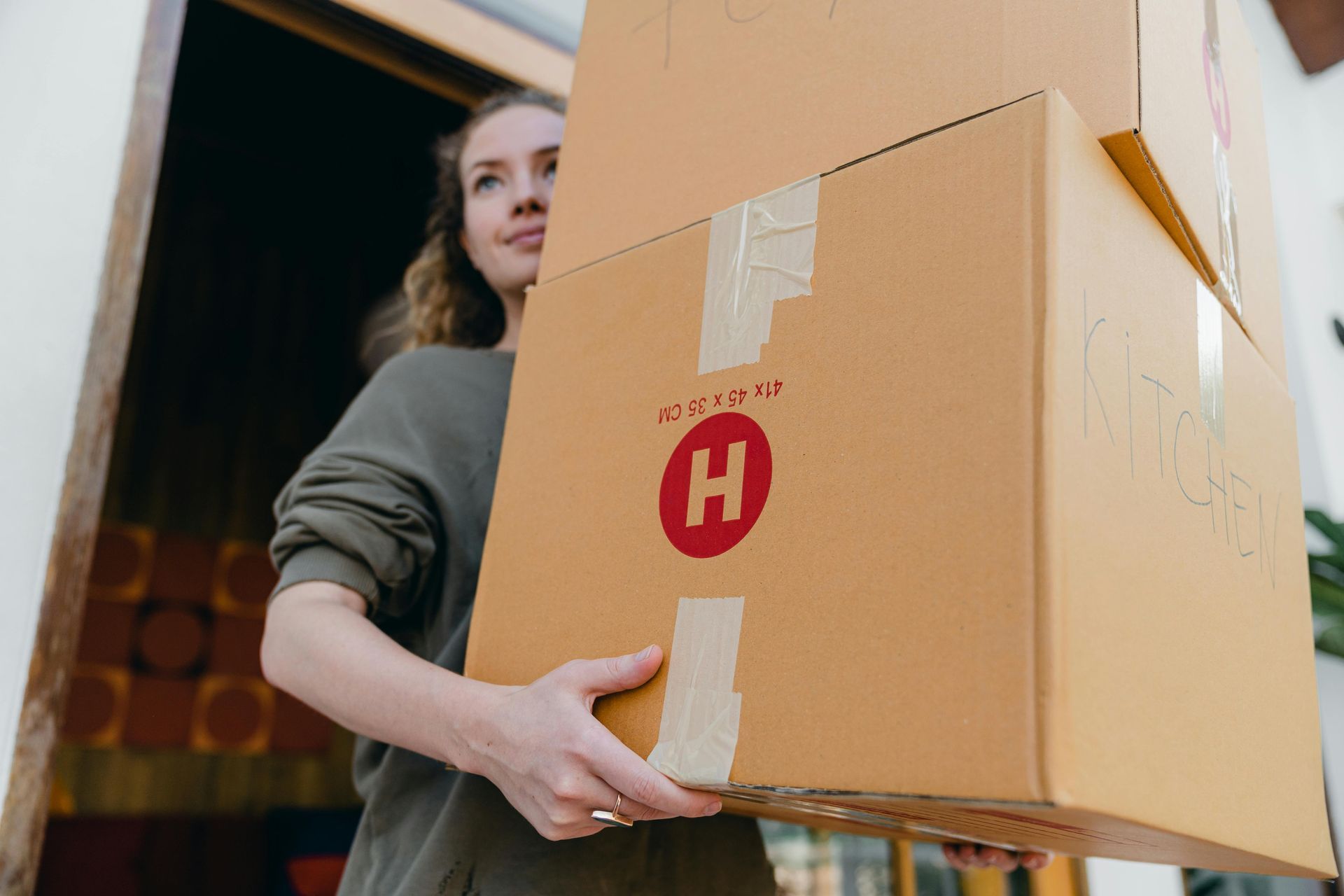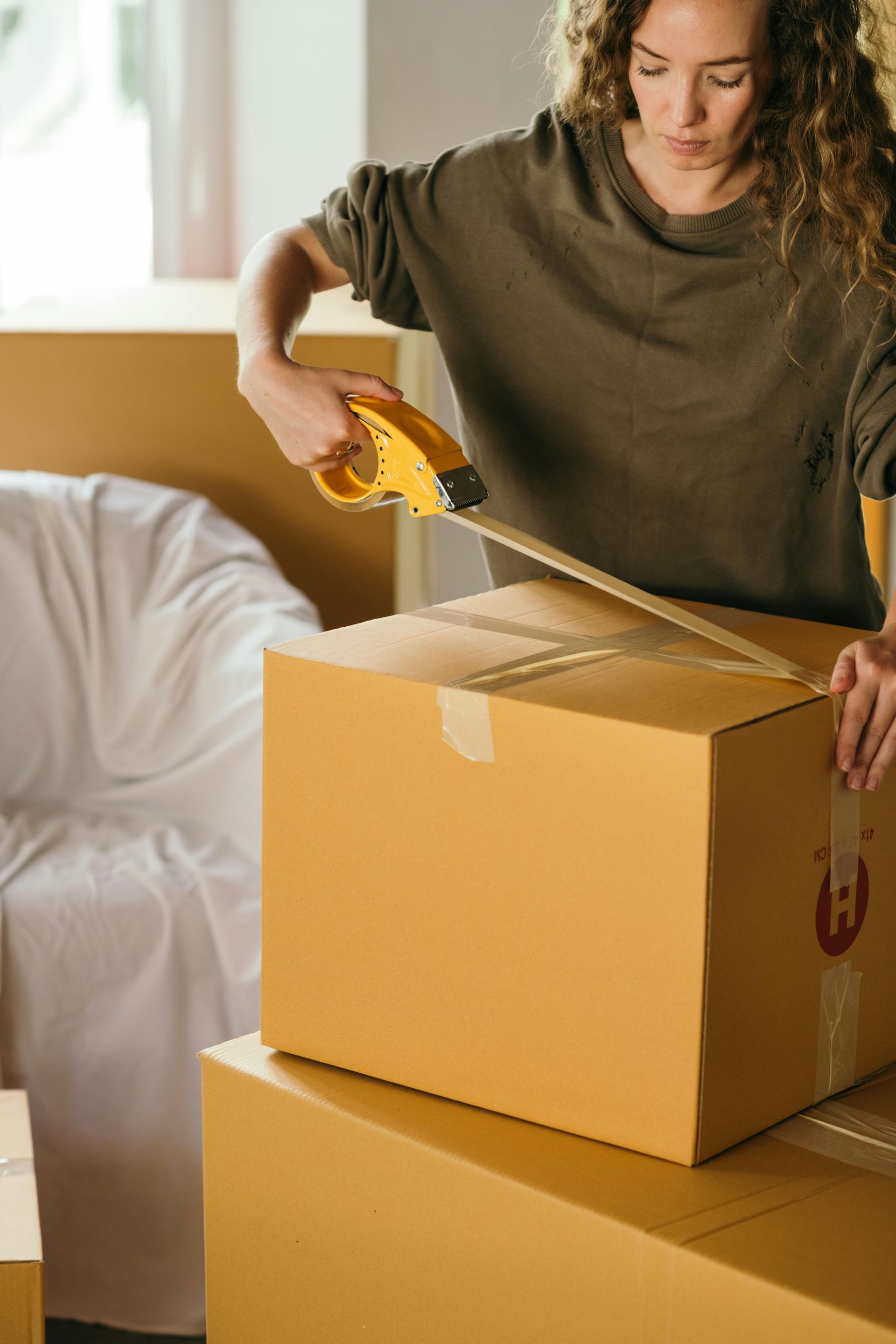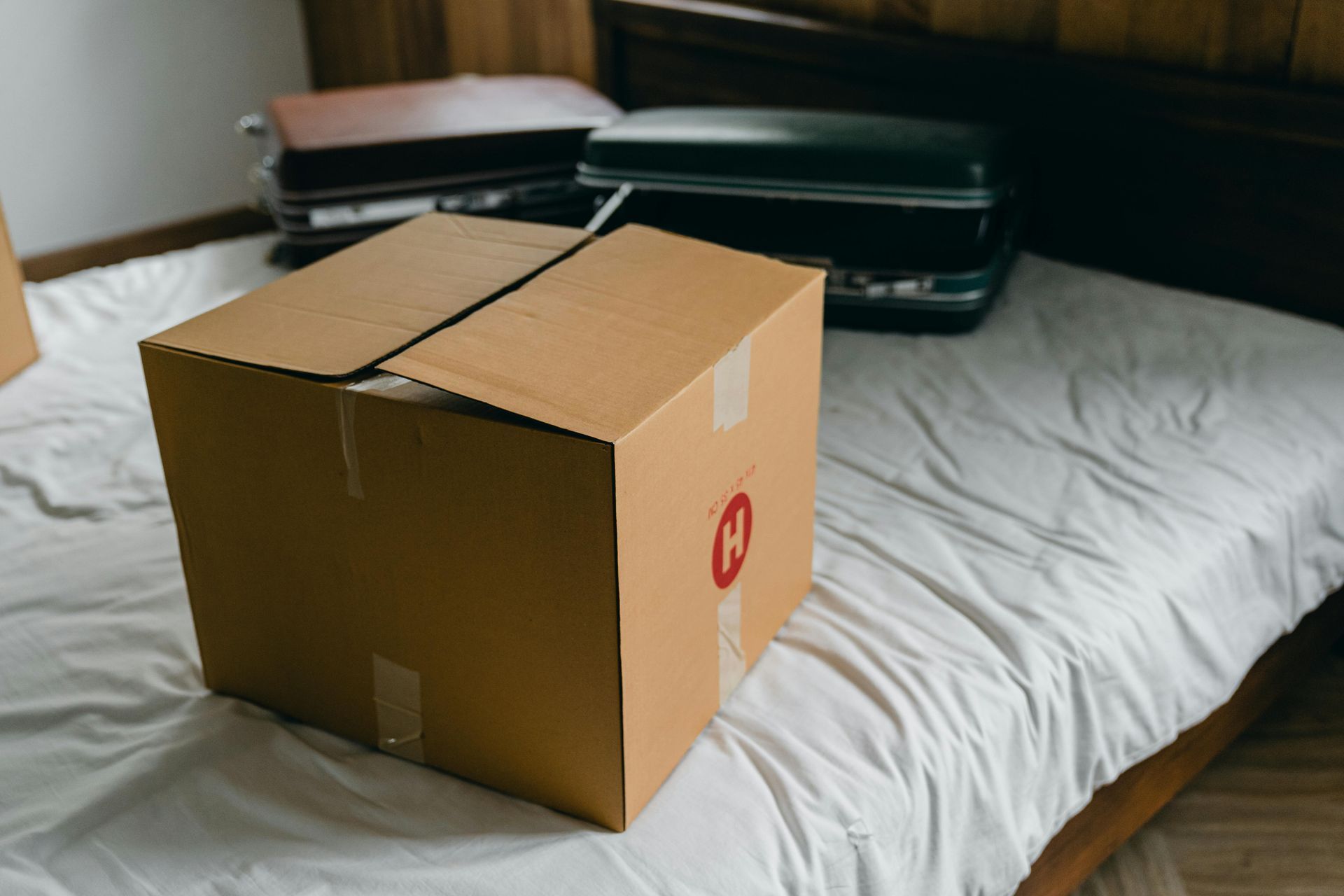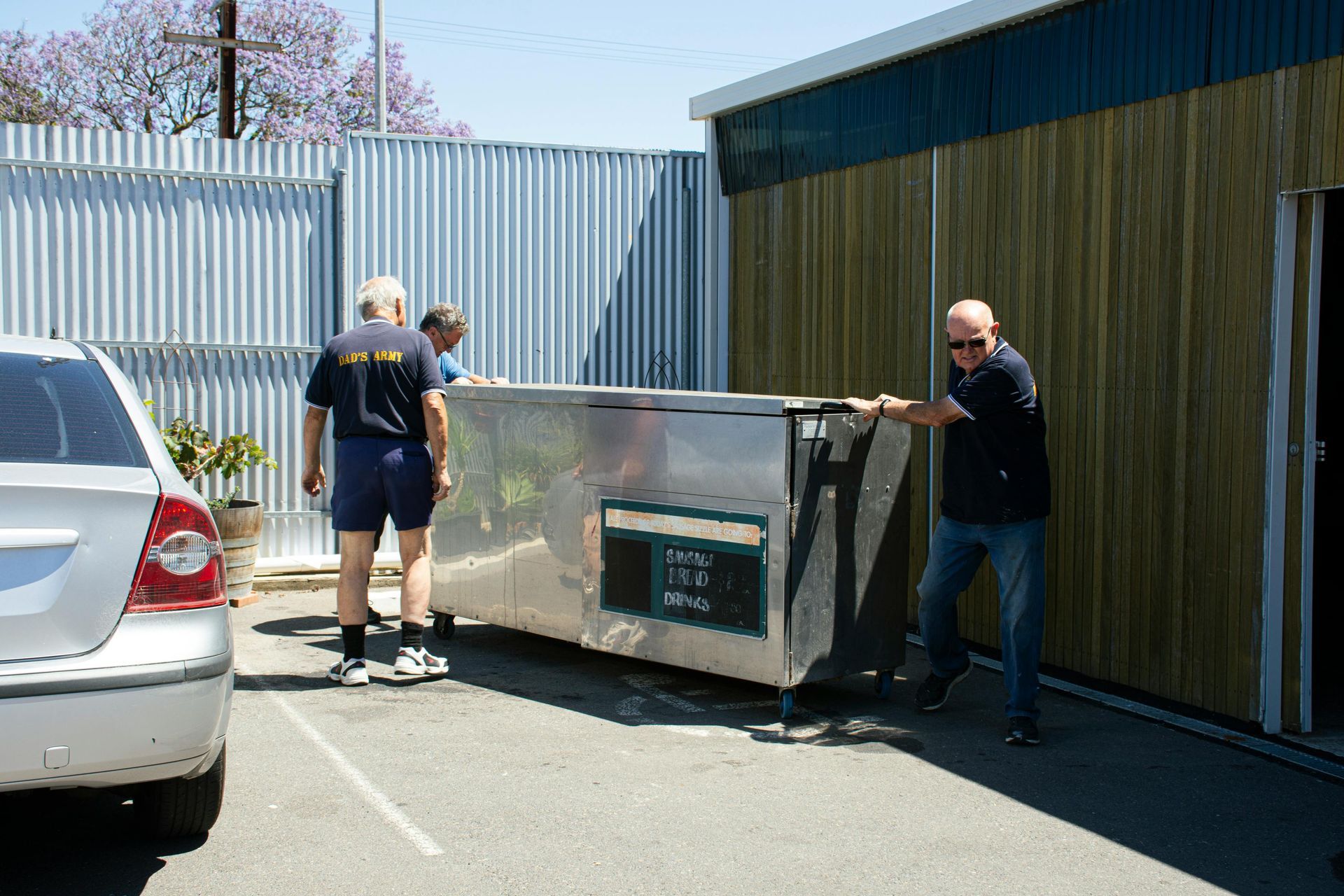The Most Forgotten Items During a Move & How to Avoid Forgetting Them
Moving to a new home represents one of life's most significant transitions, yet it often becomes a source of unexpected stress when essential items are accidentally left behind. Whether you're relocating across town or across the country, the chaos of packing, coordinating logistics, and managing timelines can easily lead to overlooking important belongings that you use daily but take for granted.
Understanding the most forgotten items packing challenges helps you create a comprehensive strategy for your residential move that protects your valuable possessions and ensures a smoother transition to your new space. From essential documents tucked away in desk drawers to frequently used household items hiding in plain sight, being aware of these commonly forgotten packing items can save you time, money, and frustration on moving day.
Key Takeaways
- Essential Documents and Personal Records are among the most critical forgotten items because they're often stored in secure locations and not part of daily routines, making them easy to overlook during the packing process.
- Cleaning Supplies and Maintenance Items frequently get left behind because they're stored in utility areas, basements, or garages that aren't visited during the final packing stages.
- Personal Care and Medicine Items in bathrooms and medicine cabinets represent some of the most common forgotten items when packing because they're used daily right up until moving day.
- Items in Storage Areas including attics, basements, and outdoor storage are frequently overlooked because they're out of sight and not part of regular living spaces.
- Electronics and Their Accessories often get separated during packing, with chargers, cables, and remote controls becoming some of the most forgotten items moving day brings.
- Creating a Room-by-Room Checklist and conducting multiple walk-throughs significantly reduces the likelihood of leaving behind important belongings and ensures a more organized moving experience.
Essential Documents and Personal Records
Important documents represent some of the most forgotten items packing presents because they're typically stored in secure locations like safes, filing cabinets, or desk drawers that aren't accessed during regular packing activities. These documents are often irreplaceable or extremely difficult to replace, making their recovery a time-consuming and expensive process.
Birth certificates, passports, social security cards, and marriage licenses are frequently forgotten because they're stored separately from everyday items. Tax returns, insurance policies, and medical records can be equally problematic to replace if left behind. Property deeds, vehicle titles, and investment account statements require special attention during the moving process.
Create a dedicated document collection process at least two weeks before your move. Gather all important papers in a clearly labeled, portable container that travels with you personally rather than with the moving truck. Take photographs or make copies of essential documents as backup protection. Professional contractors who handle residential projects understand the importance of maintaining organized documentation systems and can provide guidance on protecting valuable paperwork during transitions.
Personal Care and Medicine Items
Bathrooms and medicine cabinets contain numerous commonly forgotten packing items because these spaces are used continuously until the very last moment before departure. Prescription medications, contact lens solutions, and daily vitamins are essential for health and comfort but easily overlooked during the final packing rush.
Toiletries like toothbrushes, toothpaste, shampoo, and soap are used right up until moving day, making them prone to being forgotten. Behind-the-mirror storage, shower caddies, and bathroom drawers often contain items that aren't visible during casual inspections. First aid supplies, thermometers, and over-the-counter medications represent additional categories of easily forgotten essentials.
Pack a separate "survival kit" containing essential personal care items for the first few days in your new home. This approach ensures you have the necessary items immediately available while larger shipments are being unpacked. Create a bathroom inventory checklist and perform a final sweep of all bathroom storage areas, including medicine cabinets, vanity drawers, and shower storage.
Cleaning Supplies and Maintenance Items
Utility areas, garages, and basement storage spaces contain many forgotten items because these locations aren't part of daily living routines and are often overlooked during systematic packing processes. Cleaning supplies, tools, and maintenance equipment are essential for settling into a new home but frequently remain behind in storage areas.
Vacuum cleaners, mops, brooms, and cleaning products are needed immediately in your new space but are among the common forgotten items when packing because they're stored in utility closets or garages. Garden tools, lawn equipment, and outdoor maintenance supplies present additional challenges because they're often stored in detached buildings or outdoor storage areas that aren't included in regular household inventory.
Schedule a specific time to inventory all storage areas, including basements, attics, garages, and outdoor buildings. Create separate checklists for each storage location and assign family members to take responsibility for specific areas. Consider whether some cleaning supplies and tools might be replaced rather than moved, especially if they're old or inexpensive. Experienced home improvement professionals understand the importance of maintaining organized tool and supply inventories during any residential transition.
Items in Storage Areas and Hidden Spaces
Attics, basements, crawl spaces, and other storage areas represent significant sources of most forgotten items moving day because these spaces are visited infrequently and may not be included in regular packing schedules. Holiday decorations, seasonal clothing, and family heirlooms stored in these areas can have significant sentimental or monetary value despite being out of sight. Many homeowners discover they need junk removal services when clearing out years of accumulated items from storage spaces that haven't been accessed regularly.
Outdoor storage buildings, detached garages, and shed spaces often contain valuable items that are easily forgotten during the moving process. Sports equipment, recreational gear, and hobby supplies stored in these locations may not be discovered until after the move is complete. Hidden storage areas like under-stair spaces, built-in cabinets, and wall storage can conceal important belongings.
| Storage Location | Commonly Forgotten Items |
|---|---|
| Attic | Holiday decorations, seasonal clothing, family photos, old furniture, stored books, childhood memorabilia |
| Basement | Tools, workshop equipment, sports gear, wine collections, storage boxes, exercise equipment |
| Garage | Automotive supplies, garden tools, bicycles, lawn equipment, paint, cleaning products |
| Outdoor Storage | Pool supplies, patio furniture, grills, outdoor toys, gardening materials, seasonal decorations |
Map out every storage area in and around your property well before moving day. Use flashlights or portable lighting to thoroughly inspect dark storage spaces. Take photographs of storage areas to help identify items that might be forgotten later. Professional construction and renovation teams are experienced in locating and accessing all storage areas within residential properties and can provide insights into commonly overlooked spaces.
Electronics and Technology Accessories
Modern homes contain numerous electronic devices and their associated accessories, creating multiple opportunities for commonly forgotten packing items. Chargers, cables, remote controls, and small electronic accessories are easily separated from their primary devices during packing, making them difficult to track and easy to forget.
Television remote controls, cable boxes, router power adapters, and gaming console accessories are frequently left behind because they're small and can be stored in various locations throughout the home. Phone chargers, laptop power cords, and USB cables represent additional categories of easily misplaced technology items. Smart home devices, security system components, and Wi-Fi equipment require special attention during moves.
Create an electronics inventory that includes all devices and their accessories. Use labeled bags or containers to keep each device with its associated cables and accessories. Take photos of complex electronics setups before disconnecting them to simplify reinstallation. Consider creating a "tech box" that contains all electronic accessories and travels with you rather than with the moving truck.
Kitchen and Small Appliance Essentials
Kitchen areas contain numerous small items that become forgotten items because they're used daily and stored in multiple locations throughout the cooking and dining spaces. Specialty cooking utensils, small appliances, and food storage containers are easily overlooked during kitchen packing because they may be distributed across various cabinets, drawers, and pantry areas.
Coffee makers, blenders, toasters, and other small appliances often have detachable parts that get separated during packing. Spice collections, condiments, and pantry items represent additional categories that are frequently left behind. Kitchen junk drawers contain miscellaneous items like can openers, corkscrews, and measuring tools that are essential but easy to forget.
Pack kitchen items systematically, starting with the least-used items and progressing to daily essentials. Keep appliance parts together using rubber bands or small bags. Create a final kitchen checklist that includes all drawers, cabinets, and storage areas. Professional home improvement specialists understand kitchen organization systems and can recommend efficient packing strategies for complex cooking spaces.
Comprehensive Prevention Strategies
Preventing most forgotten items from moving situations requires systematic planning and multiple verification processes throughout the packing and moving timeline. Creating detailed inventories, conducting regular walk-throughs, and establishing accountability systems significantly reduces the likelihood of leaving important belongings behind.
Develop a room-by-room moving checklist that includes all storage areas, hidden spaces, and frequently overlooked locations. Assign specific family members to take responsibility for particular areas or categories of items. Schedule multiple inspection rounds, including a final walk-through on moving day, after all packed items have been loaded.
Use smartphone apps or digital tools to photograph rooms before and after packing to create visual inventories. Color-code boxes and create detailed labeling systems that indicate both contents and destination rooms. Maintain a master inventory list that tracks all packed items and their box locations.
Professional moving coordination often involves experienced contractors who understand residential layouts and can identify commonly overlooked storage areas. These professionals bring systematic approaches to property transitions and can provide valuable insights into comprehensive packing strategies that minimize forgotten items while maximizing moving efficiency.
Frequently Asked Questions
What are the most commonly forgotten items when moving?
Essential documents, cleaning supplies, personal care items, and electronics accessories represent the most frequently forgotten categories. Items stored in attics, basements, and utility areas are also commonly overlooked during moves.
How can I remember to pack items from storage areas?
Create a comprehensive property map that includes all storage locations and schedule specific times to inventory each area. Use flashlights to inspect dark spaces and take photographs to help track stored items.
When should I start gathering important documents for my move?
Begin collecting essential documents at least two weeks before your moving date. This allows sufficient time to locate items stored in various locations and make copies of critical paperwork.
What should I do with items I use daily right up until moving day?
Pack a separate survival kit containing essential daily items for immediate use in your new home. Create a final-day checklist for items like toiletries and medications that are used until departure.
How many times should I walk through my home before the final move?
Conduct at least three separate walk-throughs: one during initial packing, another after most items are packed, and a final inspection after everything is loaded. Each walk-through should include all storage areas and hidden spaces.
Final Thoughts
Successfully avoiding most forgotten items packing challenges requires careful planning, systematic organization, and thorough attention to detail throughout the moving process. By understanding the common categories of overlooked items and implementing comprehensive prevention strategies, you can significantly reduce the stress and expense associated with recovering forgotten belongings after your move is complete.
Remember that professional support can provide valuable expertise in managing complex residential transitions. Whether you're coordinating with moving companies, organizing renovation projects, or managing property improvements, experienced professionals understand the intricacies of residential spaces and can help ensure that nothing important gets left behind during your transition to a new home.
Planning a move? Contact our team for professional support and ensure nothing gets left behind.
Reference:
https://www.loveandrenovations.com/room-by-room-packing-checklist/

